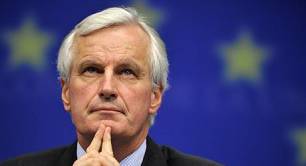Wow! Europe finds common ground for impact measurement
A Europe-wide standard on impact measurement has been decided, which could help social ventures maximise their full potential.
The European Commission has agreed on an official standard for impact measurement, which will be applicable across Europe. The new “Eurpean Standard” will help illustrate the socio-economic value created by social enterprises and funders.
It will provide clarity to a previously grey area within the sector, which involves approximately 160 different measurement frameworks being implemented across the continent.
The Standard has been developed by the European Commission’s GECES and its sub-group on Social Impact Measurement. They carried out an intensive year-long collective effort involving consultation with social enterprises, the public sector, the measurement community, venture philanthropy, social investment organisations, member states and other experts.
“The European Standard on impact measurement is an important step forward… and shows that Europe has found common ground”
Lisa Hehenberger, research and policy director of the European Venture Philanthropy Association (EVPA), whose work informed the Standard, said: “The Standard is not a ‘one-size-fits-all’ approach, but rather recommends practical, logical, common-sense steps to measure impact.”
The European Standard will also play a key role in the EU’s Programme for Employment and Social Innovation and the European Social Entrepreneur Fund to make it easier for social fund managers to assess which individual social enterprises are able to qualify for grants, investments and guarantees. In the future Social Enterprises across Europe may be asked to use the measurement Standard when applying for funding.
Hehenberger said that “the adoption of the report is just the beginning of the progress towards clearer and better measurement, however, and the Standard is designed to evolve as the sector grows and develops.”
Efficient impact measurement for social ventures is vital because it allows organisations to assess their strengths and weaknesses based on tangible variables, which will in turn help them make better decisions for their organisations and become truly accountable to the people they are trying to help.
The European Commission is now aiming to gradually implement the Standard across Europe with a view to developing the market and reducing the risk of multiple standards being used by different parties and countries, as is the situation currently.
The Commission’s sub-groups will issue practical guidance papers on how organisations can use the Standard. They will also set up a knowledge centre to collect data and to provide social ventures with support on impact measurement.
A Europe-wide measurement framework of standardised outcomes and indicators will be introduced per social sector. This means that for each sector, for example healthcare, social housing and education, there will be public libraries and catalogues of standardised outcomes and associated indicators that funders and social enterprises can use when deciding what to measure.
The measurement framework criteria will also play an important role in the work being done by the Social Impact Investment Taskforce, which was established at the international G8 forum held in London earlier this month. The Taskforce is working to create a more harmonised measurement framework globally and will use the European Standard agreed upon as a basis for this task.
Kurt Peleman, CEO of EVPA, says: “The European Standard on impact measurement is an important step forward for those organisations working to achieve social impact and shows that Europe has found common ground.”
The European Venture Philanthropy Association’s Practical Guide informs the Standard agreed upon and sets out five easy-to-understand steps for social ventures to implement impact measurement.
1. Setting Objectives
2. Analysing Stakeholders
3. Measuring Results
4. Measuring & Valuing Impact
5. Monitoring & Reporting



